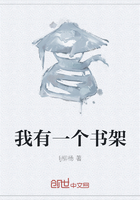“Here’s a cigar, and the doctor has a prescription containing hotwater and a lemon, which is good medicine on a night like this. Itmust be something important which has brought you out in such agale.”
“It is indeed, Mr. Holmes. I’ve had a bustling afternoon, Ipromise you. Did you see anything of the Yoxley case in the latesteditions?”
“I’ve seen nothing later than the fifteenth century to-day.”
“Well, it was only a paragraph, and all wrong at that, so you havenot missed anything. I haven’t let the grass grow under my feet.
It’s down in Kent, seven miles from Chatham and three from therailway line. I was wired for at 3:15, reached Yoxley Old Place at 5,conducted my investigation, was back at Charing Cross by the lasttrain, and straight to you by cab.”
“Which means, I suppose, that you are not quite clear aboutyour case?”
“It means that I can make neither head nor tail of it. So far asI can see, it is just as tangled a business as ever I handled, and yetat first it seemed so simple that one couldn’t go wrong. There’s no1014 The Complete Sherlock Holmes
motive, Mr. Holmes. That’s what bothers me—I can’t put my handon a motive. Here’s a man dead—there’s no denying that—but, sofar as I can see, no reason on earth why anyone should wish himharm.”
Holmes lit his cigar and leaned back in his chair.
“Let us hear about it,” said he.
“I’ve got my facts pretty clear,” said Stanley Hopkins. “All Iwant now is to know what they all mean. The story, so far as Ican make it out, is like this. Some years ago this country house,Yoxley Old Place, was taken by an elderly man, who gave the nameof Professor Coram. He was an invalid, keeping his bed half thetime, and the other half hobbling round the house with a stick orbeing pushed about the grounds by the gardener in a Bath chair.
He was well liked by the few neighbours who called upon him, andhe has the reputation down there of being a very learned man. Hishousehold used to consist of an elderly housekeeper, Mrs. Marker,and of a maid, Susan Tarlton. These have both been with him sincehis arrival, and they seem to be women of excellent character. Theprofessor is writing a learned book, and he found it necessary,about a year ago, to engage a secretary. The first two that hetried were not successes, but the third, Mr. Willoughby Smith, avery young man straight from the university, seems to have beenjust what his employer wanted. His work consisted in writing allthe morning to the professor’s dictation, and he usually spentthe evening in hunting up references and passages which boreupon the next day’s work. This Willoughby Smith has nothingagainst him, either as a boy at Uppingham or as a young man atCambridge. I have seen his testimonials, and from the first he wasdecent, quiet, hard-working fellow, with no weak spot in him atall. And yet this is the lad who has met his death this morning inthe professor’s study under circumstances which can point only tomurder.”
The wind howled and screamed at the windows. Holmes and Idrew closer to the fire, while the young inspector slowly and pointby point developed his singular narrative.
“If you were to search all England,” said he, “I don’t suppose youcould find a household more self-contained or freer from outsideinfluences. Whole weeks would pass, and not one of them go pastthe garden gate. The professor was buried in his work and existedfor nothing else. Young Smith knew nobody in the neighbourhood,and lived very much as his employer did. The two women hadnothing to take them from the house. Mortimer, the gardener,who wheels the Bath chair, is an army pensioner—an old Crimeanman of excellent character. He does not live in the house, but inthree-roomed cottage at the other end of the garden. Those arethe only people that you would find within the grounds of YoxleyThe Return of Sherlock Holmes 1015
Old Place. At the same time, the gate of the garden is a hundredyards from the main London to Chatham road. It opens with alatch, and there is nothing to prevent anyone from walking in.
“Now I will give you the evidence of Susan Tarlton, who is theonly person who can say anything positive about the matter. Itwas in the forenoon, between eleven and twelve. She was engagedat the moment in hanging some curtains in the upstairs frontbedroom. Professor Coram was still in bed, for when the weatheris bad he seldom rises before midday. The housekeeper was busiedwith some work in the back of the house. Willoughby Smith hadbeen in his bedroom, which he uses as a sitting-room, but the maidheard him at that moment pass along the passage and descendto the study immediately below her. She did not see him, but shesays that she could not be mistaken in his quick, firm tread. Shedid not hear the study door close, but a minute or so later therewas a dreadful cry in the room below. It was a wild, hoarse scream,so strange and unnatural that it might have come either from aman or a woman. At the same instant there was a heavy thud,which shook the old house, and then all was silence. The maidstood petrified for a moment, and then, recovering her courage,she ran downstairs. The study door was shut and she opened it.
Inside, young Mr. Willoughby Smith was stretched upon the floor.
At first she could see no injury, but as she tried to raise him shesaw that blood was pouring from the underside of his neck. It waspierced by a very small but very deep wound, which had dividedthe carotid artery. The instrument with which the injury had beeninflicted lay upon the carpet beside him. It was one of those smallsealing-wax knives to be found on old-fashioned writing-tables,with an ivory handle and a stiff blade. It was part of the fittings ofthe professor’s own desk.















